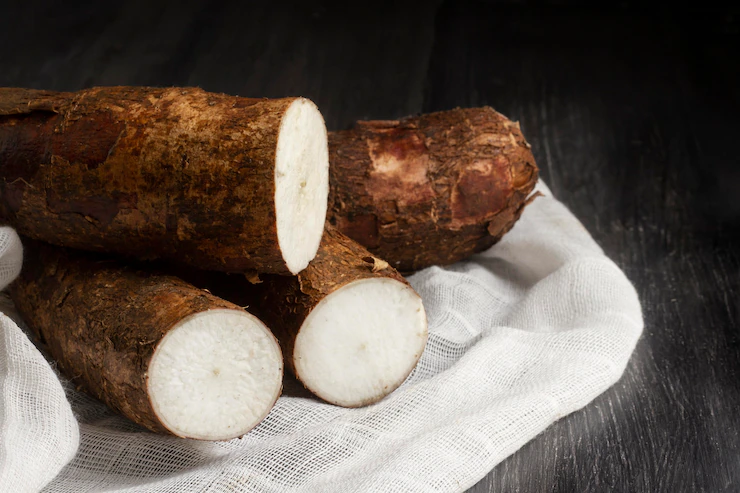Cassava, also known as manioc or tapioca, is a versatile and starchy root crop that can be grown successfully in specific regions of South Africa. If you’re considering growing cassava, whether for personal consumption or on a larger scale, here are ten important things you should know:
- Climate and Region: Cassava thrives in warm tropical and subtropical climates. In South Africa, regions with suitable conditions for cassava cultivation include parts of Limpopo, Mpumalanga, and KwaZulu-Natal. Choose a region with a long growing season, high temperatures, and well-distributed rainfall.
- Variety Selection: There are different cassava varieties available, each with its unique characteristics, such as maturity period, root color, and starch content. Popular cassava varieties grown in South Africa include TMS 30572, TMS 92/0326, and TME 419. Consider factors such as yield potential, disease resistance, and market demand when selecting cassava varieties.
- Soil Requirements: Cassava can grow in various soil types, but it prefers well-drained soils with good fertility. Conduct a soil test to assess the pH level and nutrient content of your soil. Cassava generally prefers a pH range of 5.5 to 6.5. Amend the soil with organic matter and appropriate fertilizers based on soil test results.
- Land Preparation: Clear the land of weeds, rocks, and debris before planting cassava. Prepare the soil by tilling and incorporating organic matter to improve its structure and nutrient content. Ensure proper drainage to prevent waterlogging, which can be detrimental to cassava plants.
- Planting and Spacing: Cassava can be propagated using stem cuttings. Prepare healthy stem cuttings, around 20-30 centimeters in length, and plant them at an angle in the prepared soil. Maintain a spacing of approximately one meter between the planting rows and 80-100 centimeters between individual plants within rows.
- Irrigation: Cassava is a relatively drought-tolerant crop, but regular and adequate irrigation is essential during the establishment phase and periods of dry spells. Provide sufficient water to keep the soil moist but avoid overwatering, as it can lead to root rot. Implement an irrigation system suitable for your farm, such as drip irrigation or sprinklers.
- Weed Control: Weeds can compete with cassava plants for nutrients, sunlight, and water. Implement effective weed control measures, including timely cultivation, mulching, and the use of herbicides registered for cassava. Regularly monitor the field for weed growth and take appropriate action to minimize their impact.
- Pest and Disease Management: Cassava is susceptible to pests such as mealybugs, aphids, and diseases like cassava mosaic disease and cassava brown streak disease. Implement integrated pest and disease management strategies, including regular field monitoring, cultural practices, and the use of disease-resistant varieties. Consult with local agricultural experts for specific recommendations.
- Harvesting: Cassava roots are typically ready for harvest 8-12 months after planting, depending on the variety and growing conditions. Harvest cassava when the leaves turn yellow and start to dry, indicating maturity. Carefully dig out the roots using a fork or shovel, being cautious not to damage them. Remove the leaves and store the roots in a cool, dry place.
- Processing and Utilization: Cassava can be consumed fresh or processed into various products such as flour, starch, and animal feed. Determine the intended use of your cassava harvest and explore processing options suitable for your needs. Proper processing techniques are crucial to remove any toxic compounds and enhance the nutritional value of cassava products.
By considering these ten crucial factors before growing cassava in South Africa, you’ll be better prepared to cultivate a successful crop. Stay updated on local research, industry best practices, and consult with local agricultural experts for tailored advice. With proper care and attention, you can enjoy a productive harvest of cassava, a valuable crop with multiple uses.
Join 'Farmers Mag' WhatsApp Channel
Get the latest Farming news and tips delivered straight to your WhatsApp
CLICK HERE TO JOIN






